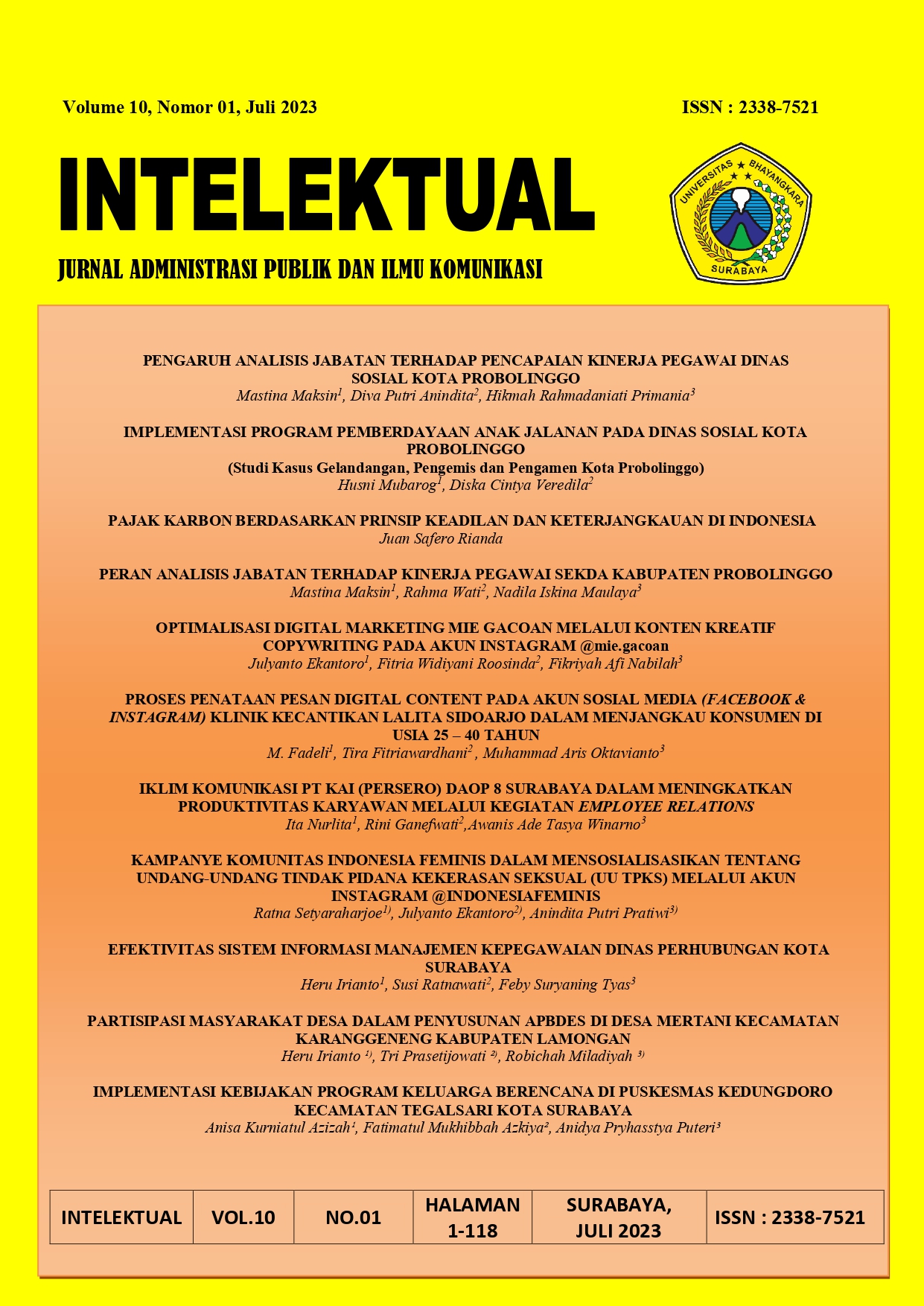IMPLEMENTASI PROGRAM PEMBERDAYAAN ANAK JALANAN PADA DINAS SOSIAL KOTA PROBOLINGGO (Studi Kasus Gelandangan, Pengemis dan Pengamen Kota Probolinggo)
Main Article Content
Abstract
The purpose of this research is to find out and describe the implementation of the Street Children Empowerment Program at the Probolinggo City Social Service and to find out what programs are related to street children empowerment carried out by the Probolinggo City Social Service. This research method uses a qualitative approach with a qualitative descriptive research type, this research method uses interviews and the sample is determined using observation and documentary techniques, data analysis of information collection, data reduction, data presentation at the final stage of drawing conclusions. The Probolinggo City Social Service has a strategy for dealing with street children such as providing guida to street children, increasing guidance to families of street children, skills for street children, namely through screen printing, sewing and computer training programs with this program being very beneficial for street children and street children have creativity. There is also a basic food assistance program for street children, namely assistance with sugar, cooking oil or other basic food assistance with this basic food assistance for the concern of the Probolinggo City Social Service for street children. This strategy was implemented in an effort to provide provisions for street children so that they can interact and have better ethics in society in accordance with decency.
Keywords : Program Implementation, Empowerment, Streer Children.
Article Details

This work is licensed under a Creative Commons Attribution 4.0 International License.
Authors who publish with Intelektual: Jurnal Administrasi Publik dan Ilmu Komunikasi agree to the following terms:
- The author retains copyright licensed under Creative Commons Attribution-NonCommercial 4.0 (CC BY-NC 4.0), which allows others to remix, adapt, and expand on the author's work non-commercially, and even if someone else's new work must also acknowledge the author and is non-commercial, they do not need to license their derivative works on the same terms.
- Authors are permitted and encouraged to post their work online (e.g., in institutional repositories or on their websites) before and during the submission process, as this can lead to productive exchange, as well as earlier and greater citation of the published work ( See Impact of Open Access). Authors can archive preprints and postprints or publisher/PDF versions.

